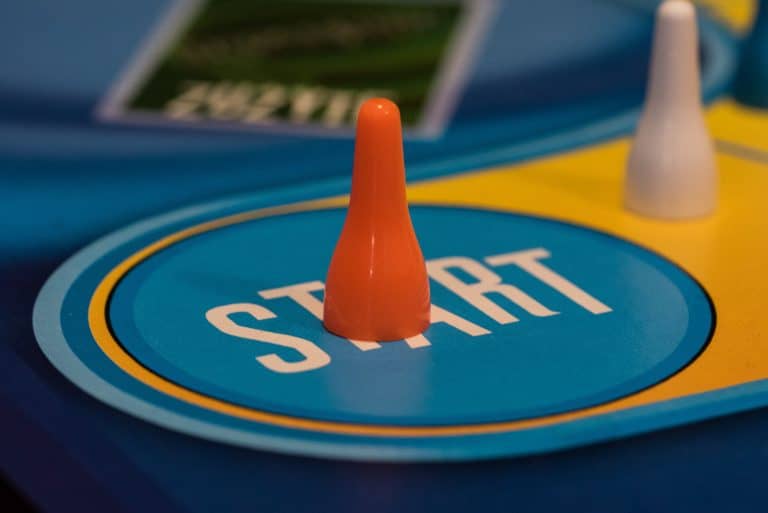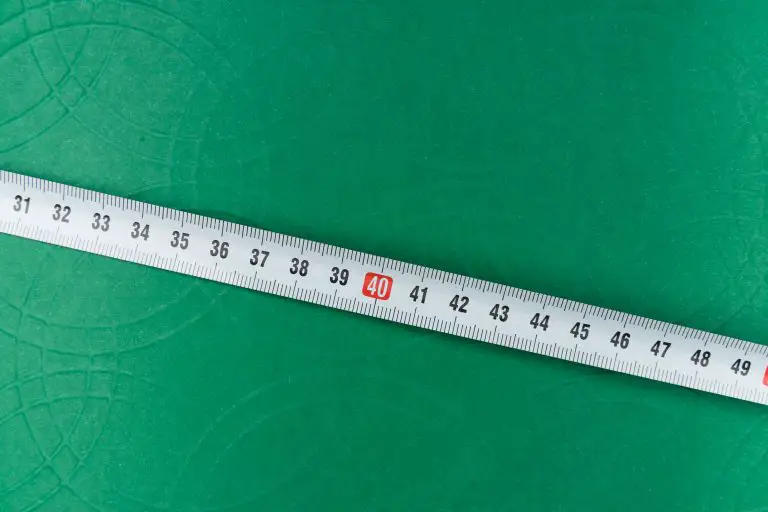How to be smart with money in your 20s (so you can make work optional sooner)
In your 20s, you’re probably just starting to earn and spend your own money.
You want to be smart with your money and do everything possible to secure your financial security. That means making a budget and sticking to it, living below your means, investing in yourself, and being mindful of your credit score. It also means taking advantage of opportunities to make your money work for you.
So if you’re looking for how to be smart with money in your 20s, follow the 10 tips below!

Managing money in your 20’s
One of the biggest challenges you face in your 20’s when it comes to money is that you probably don’t have a lot of experience with it and weren’t taught much about it at school or home.
This means that you can be prone to making mistakes with your spending, not investing properly, and not always making the smartest choices when accessing credit and debt.
This can lead to a lot of financial challenges down the road. That’s why it’s so important to learn about money and how to handle it correctly from an early age.
If you can get smarter with your money now, you’ll be better later in life.
It’s hard enough to stay disciplined when it comes to spending, but that becomes even more difficult when so many tempting offers for credit cards and loans are thrown at you each day.
However, if you don’t learn how to get smart about your finances now, you’ll regret it later on. It’s never too late or too early to start getting smarter with your money!
1. Make a budget and stick to it
Making a budget is one of the most important things you can do if you want to be smarter with money in your 20s.
This involved giving every dollar/pound/Euro a job to do and not just letting them slip through your fingers.
-Creating a budget
Creating your budget is the first step in getting smarter with your money. You need to figure out how much money you have coming in and going out each month to plan your spending accordingly.
There are a lot of different tools and resources online that can help you create a budget, so don’t be afraid to do some research and find the one that works best for you.
-Sticking to a budget
Once you’ve created a budget, the next step is to stick to it.
This can be difficult, especially if you’re used to spending freely.
But if you want to be smart with your money, you need to be disciplined and make sure you’re sticking to your budget. You can do this in a few different ways, such as setting up alerts or notifications on your phone or computer so you always know where you stand financially.
-Revising your budget
Your budget is never set in stone, and it’s important to revise it periodically. As your income or expenses change, so should your budget. Don’t be afraid to adjust as needed to stay on top of your finances.
-What to include in a budget
When creating a budget, it’s important to include all of your sources of income and expenses. This way, you have a complete picture of where your money is going each month. Some common expenses to include in your budget are:
-Housing costs
-Utilities
-Transportation costs
-Food costs
-Clothing costs
-Entertainment costs
-How to adjust your budget when needed
When your budget is first created, it’s important to make sure it’s as accurate as possible. But as time goes on, things may change, and you may need to adjust your budget. Here are a few tips for how to do that:
-If your income decreases, your budget should also decrease
-If your expenses increase, your budget should also increase
-If you go over budget one month, you’ll need to try and make up for it the next month
-Review your budget regularly and make changes as needed
-Budgeting for specific expenses
-Housing costs
One of the biggest expenses for most people is housing costs. If you’re not careful, these can quickly eat up your budget. There are a few things you can do to keep housing costs under control
-Look for affordable housing options
-Consider sharing a home with roommates
-Find ways to reduce your energy usage
-Negotiate a lower rent price
Another common expense is utilities. Again, there are a few things you can do to reduce these costs
-Turn off electronics when they’re not in use
-Unplug appliances when they’re not in use
-Install a programmable thermostat
-Creating a savings plan
It’s hard to save money when you don’t have a lot of extra cash to work with
Even if you do manage to save a little bit each month, it can be difficult to make your money grow
A savings plan is the answer. With a savings plan, you can make your money work for you and watch it grow over time. Here are a few tips for creating a successful savings plan
-Start small and gradually increase your savings amount as you get more comfortable
-Set aside money each month specifically for saving
-Choose an account that offers good interest rates
-Be patient and stay disciplined – it may take time, but your savings will
2. Don’t spend money you don’t have
One of the smartest things you can do when it comes to your finances is to not spend money you don’t have.
This may seem like common sense, but it’s something a lot of people struggle with.
If you’re constantly spending more than you’re earning, you’re going to end up in a lot of debt. And that’s not a place you want to be.
So, if you want to be smart with your money, start by learning how to live within your means.
-Create a budget and stick to it
-Avoid unnecessary expenses
-Be mindful of your credit score
-Make your money work for you
-Delay your spending to make sure you really need or want the item.
3. Invest in yourself by taking courses and learning new skills
One of the smartest things you can do is invest in yourself when it comes to your financial future.
And I don’t just mean buying stocks and bonds.
I mean by taking courses and learning new skills.
When you’re knowledgeable and skilled in a variety of areas, you’re more likely to be successful in life. And that includes being successful with your money.
So, if you want to be smart with your money, start by investing in yourself. Take courses and learn new skills. It may be challenging at first, but it will definitely be worth it in the end.
-Work relates courses
-Hobby or interest related courses
-Money management courses
-Investing courses or coaching
–Life and financial planning coaching or mentoring
5. Have an emergency fund for unexpected expenses
An emergency fund is an important part of your financial security.
You can access a savings account when you need it most – for example, you have an unexpected expense. If you don’t have an emergency fund, you’ll likely have to turn to credit cards or loans when something unexpected comes up, and that can get expensive quickly.
Start by setting aside money in a savings account specifically for emergencies. That way, you’ll always have access to funds when you need them most. And don’t worry – even if you can only save a little bit each month, your emergency fund will grow over time.
-Start small and gradually increase your savings amount as you get more comfortable
-Set aside money each month specifically for saving
-Choose an account that offers good interest rates
-Be patient and stay disciplined
– it may take time, but your emergency fund will grow over time
6. Be mindful of your credit score and use credit wisely
A credit score is a number that reflects your creditworthiness and is used by lenders to determine the interest rate you’ll be charged on a loan.
The higher your credit score, the better your interest rate will be. And the better your interest rate, the less money you’ll end up paying in the long run.
Make sure you’re aware of what it is and how it’s calculated. And if it’s not as high as you’d like it to be, work on improving it. There are a number of things you can do to boost your credit score, including:
-Pay your bills on time
-Maintain a good credit history
-Keep your credit utilization low
-Get a copy of your credit report
-Check and correct for errors on your credit report
– Pay off the debt you have
7. Invest money to make your money work for you
Investing your money remains one of the best ways to grow your money and make it work for you even as you sleep.
There are a number of other ways to make your money work for you. The key is to find an investment that fits your needs and goals. Here are a few ideas to make your money work for you
-Invest in courses and learn new skills
-Invest in real estate
-Invest in low cost globally diversified index funds in the stock market
-Invest in a business, including creating your own.
8. Make a plan for your financial future
Making a life and financial plan is one of the smartest things you can do for your future.
You know what you need to do to reach your goals when you have a plan. You’re more likely to stay disciplined and stay on track when you have a plan to follow.
Write down your goals and figure out what you need to do to achieve them. Make sure your plan is realistic and achievable, and then stick to it. If you need help creating a financial plan, we can help you here.
-How to create a life and financial plan
-Start by writing down your goals
-Figure out what you need to do in order to achieve those goals
-Figure out the money you will need or need to create
-Start taking action
-Make sure your plan is realistic, achievable, and fits into your lifestyle
-The benefits of creating a life and financial plan
You always get somewhere quicker when you know where you are going.
You know what you need to do to reach your goals when you have a plan. You’re more likely to stay disciplined and overcome the obstacles in your way.
9. Stay disciplined with your spending
When it comes to your financial future, discipline is key.
If you want to be smart with your money, you will need to:
-Manage your money well
-Save first and spend what’s left, not the other way around
-Be mindful of your spending habits
-Avoid overspending
-Remembering what you want most vs right now
10. Seek out advice from those who are financially savvy
It’s important to seek advice from financially savvy people who have already had some life and financial success.
That means talking to a financial planner, getting coaching from a money expert, or finding a mentor who can help you stay on track.
Talking or listening to financially successful people face to face, through podcasts financially, books or vlogs can help you:
-Understand what financial literacy is
-Understand your own financial situation
-Learn about different types of investments
-Understand the importance of saving money
-Find out about different ways to become wealthy
-Discover how to get out of debt
How to be smart with money in your 20s
| Key Points | Description |
|---|---|
| Make a Budget and Stick to It | Create a budget to track your income and expenses. Adjust it as needed and ensure it includes all your sources of income and expenses. |
| Don’t Spend Money You Don’t Have | Live within your means and avoid unnecessary expenses. |
| Invest in Yourself | Take courses and learn new skills to increase your earning potential. |
| Have an Emergency Fund | Set aside money in a savings account specifically for emergencies. |
| Be Mindful of Your Credit Score | Understand your credit score and work on improving it. |
| Invest Money | Make your money work for you by investing in stocks, bonds, real estate, or starting your own business. |
| Make a Plan for Your Financial Future | Write down your financial goals and create a plan to achieve them. |
| Stay Disciplined with Your Spending | Manage your money well, save first, and avoid overspending. |
| Seek Advice from Financially Savvy People | Learn from those who are financially successful and seek their advice. |
FAQ how to be smart with money
How to manage money in 20s?
Managing money in your 20s involves several key steps:
Budgeting: Create a budget to track your income and expenses. This helps you understand where your money is going and identify areas where you can save.
Saving: Aim to save a portion of your income each month. This could be for emergencies, future goals like buying a house, or retirement.
Investing: Consider starting to invest. The earlier you start, the more time your money has to grow.
Managing Debt: If you have student loans or credit card debt, create a plan to pay it off. Avoid accumulating unnecessary debt.
Building Credit: Use a credit card responsibly to build your credit score. This will be beneficial when you want to take out a loan or mortgage in the future.
Insurance: Ensure you have appropriate insurance coverage, such as health insurance.
Financial Education: Continually educate yourself about personal finance. The more you know, the better decisions you can make.
Everyone’s financial situation is unique, so what works best for you might be different. It’s always a good idea to consult with a financial planner or coach for personalized advice.
How can a 20 year old grow money?
A 20-year-old can grow money through the following ways:
Saving: Start by saving a portion of your income. Even small amounts can add up over time.
Investing: Consider investing in the stock market, mutual funds, or exchange-traded funds (ETFs). If you’re employed, take advantage of any employer-matching retirement plans like a 401(k).
Education and Skills: Invest in your education and skills. This can lead to higher-paying job opportunities in the future.
Side Hustles: Consider starting a side hustle to earn extra income, from freelance work to starting your own small business.
Frugality: Live within your means and avoid unnecessary expenses. This can help you save more money to invest.
Financial Literacy: Educate yourself about personal finance. Understanding concepts like compound interest, investment risk, and tax-advantaged accounts can help you make smarter financial decisions.
Growing wealth takes time and discipline. It’s not about getting rich quick, but about making consistent, wise financial decisions.
How can I be smart with money at 21?
Being smart with money at 21 involves several key steps:
Budgeting: Create a budget to track your income and expenses. This helps you understand where your money is going and control your spending.
Saving: Aim to save a portion of your income each month. This could be for emergencies, future goals, or retirement.
Investing: Consider starting to invest. The earlier you start, the more time your money has to grow. Look into options like stocks, bonds, or mutual funds.
Managing Debt: If you have student loans or credit card debt, create a plan to pay it off. Avoid accumulating unnecessary debt.
Building Credit: Use a credit card responsibly to build your credit score. This will be beneficial when you want to take out a loan or mortgage in the future.
Insurance: Ensure you have appropriate insurance coverage, such as health insurance.
Financial Education: Continually educate yourself about personal finance. The more you know, the better decisions you can make.
Where should I be financially at 25?
Where you should be financially at 25 can vary greatly depending on your personal circumstances, career, education, and life choices. However, here are some general milestones you might aim for:
Emergency Fund: You should aim to have an emergency fund that can cover 3-6 months of living expenses. This provides a safety net in case of unexpected expenses or job loss.
Debt Management: If you have student loans, credit card debt, or other liabilities, you should have a plan in place to manage and pay down this debt.
Retirement Savings: It’s never too early to start saving for retirement. If your employer offers a pensions or 401(k) match, try to contribute at least enough to get the full match. If not, consider starting an IRA (US) or a SIPP (UK)
Credit Score: By 25, you should be working on building a good credit score. This will help you secure better rates on loans and credit cards in the future.
Insurance: Ensure you have appropriate insurance coverage, such as health insurance and possibly renter’s insurance or auto insurance, depending on your needs.
Investing: If you’re financially able, consider starting to invest beyond just your retirement account. This could be in stocks, bonds, mutual funds, or real estate.
Budgeting: You should have a solid understanding of your income and expenses and follow a budget that allows you to live within your means while saving and investing.
Financial Goals: You should have clear financial goals and a plan to achieve them. This could include saving for a down payment on a house, planning for future education expenses, or setting a target retirement age.
How to make money in your 20s?
There are several ways to make money in your 20s:
Get a Job: This is the most straightforward way. Find a job that aligns with your skills and interests. Don’t be afraid to start at an entry-level position and work your way up.
Further Your Education: Invest in your education to increase your earning potential. This could mean getting a degree, attending vocational training, or acquiring certifications in your field.
Start a Side Hustle: This could be anything from freelance writing, graphic design, tutoring, or even starting your own small business. The internet offers many opportunities to earn money on the side.
Invest: If you have some money saved up, consider investing. This could be in the stock market, real estate, or a small business. Remember, investing always comes with risk, so do your research and consider seeking advice from a financial advisor.
Save and Budget: While not directly making money, saving and budgeting can help you accumulate wealth. You can gradually build up your wealth over time by cutting unnecessary expenses and saving a portion of your income.
Network: Build relationships with people in your field. Networking can lead to job opportunities and can open doors to new possibilities.
Develop Marketable Skills: Skills like coding, digital marketing, or foreign languages can significantly increase your earning potential. Look for skills that are in high demand in the job market.
Final thoughts: How to be smart with money in your 20s
When you’re in your 20s, it’s important to start thinking about your financial future.
You want to be smart with your money and do everything possible to secure your financial security. That means making a budget and sticking to it, living below your means, investing in yourself, and being mindful of your credit score.
It also means taking advantage of opportunities to make your money work for you. So if you’re looking to be smart with money in your 20s, follow the above tips.
If you would like help with your financial planning, sign up for our newsletter below.
If you’ve made it this far, congratulations! You’re already taking steps towards a healthier financial future. But maybe you’re feeling a bit overwhelmed. Maybe the of budgeting, saving, and investing still makes you break out in a cold sweat. Don’t worry, you’re not alone, and help is available.
At Financially Happy Money Coaching, I understand money isn’t just about numbers. It’s about emotions, behaviours, and life choices. That’s why we’re here to help you take the stress out of money and build wealth that aligns with your values and lifestyle.
Whether you’re just starting out on your financial journey or you’re looking to take your finances to the next level, we’re here to guide you every step of the way. I’ll help you understand your financial behaviours, set realistic goals, and create a personalized plan to achieve those goals.
So, why wait? Start your journey towards financial happiness today. Remember, the best time to start was yesterday. The second best time is now.
Click here to schedule your consultation and let’s make your money work for you, not vice versa. 💪💰
Remember, financial freedom isn’t a destination; it’s a journey. And every journey is easier when you have a guide. So, let’s embark on this journey together and create a financially happy future. 🚀💸
📚 Financial Freedom Resources
- The Ultimate Guide To Building Your Savings to $100,000! 📘 is a transformative book that equips readers with principles, strategies, and the mindset 🧠 needed to reach a $100,000 savings goal 💰. It’s a journey towards financial freedom 🚀, challenging beliefs 🤔, embracing new habits 🔄, and overcoming obstacles 💪.
- How to Manage Your Finances: Your Guide to Financial Freedom 📘 is a comprehensive resource packed with practical advice on budgeting 💰, investing 📈, reducing debt 💳, and building wealth 💎. It’s an essential guide for anyone, novice or experienced, aiming to take control of their financial future and achieve financial independence 🚀.
Remember, self-study is a powerful tool for life and financial transformation. Happy reading! 🎉
📚 Financial Freedom Resources
- The Ultimate Guide To Building Your Savings to $100,000! 📘 is a transformative book that equips readers with principles, strategies, and the mindset 🧠 needed to reach a $100,000 savings goal 💰. It’s a journey towards financial freedom 🚀, challenging beliefs 🤔, embracing new habits 🔄, and overcoming obstacles 💪.
- How to Manage Your Finances: Your Guide to Financial Freedom 📘 is a comprehensive resource packed with practical advice on budgeting 💰, investing 📈, reducing debt 💳, and building wealth 💎. It’s an essential guide for anyone, novice or experienced, aiming to take control of their financial future and achieve financial independence 🚀.
- Mastering Budgeting in Your 40s: Your Guide to Financial Freedom 📘 is your essential roadmap to financial savvy. Packed with tips on budgeting 💰, investing 📈, and debt management 💳, it’s the perfect toolkit for anyone in their 40s looking to secure their financial future and sail towards independence 🚀.
Remember, self-study is a powerful tool for life and financial transformation. Happy reading! 🎉









